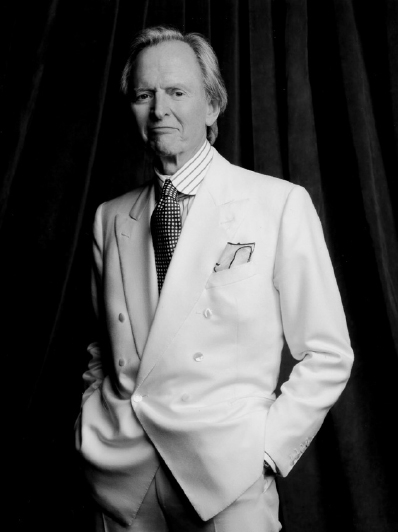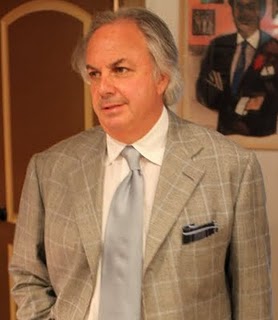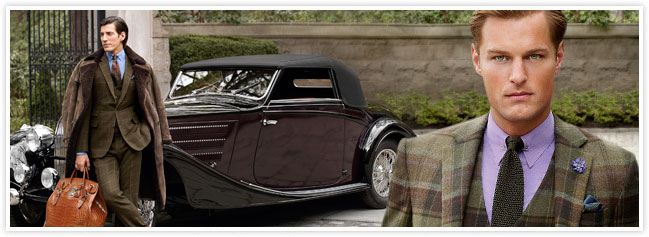 Being called stylish can mean so many things. You dress well, nice haircut, cool bag, great car, impressive art collection. Even how you walk down the street can be stylish – look at John Travolta in Saturday Night Fever. Then there’s the kind of stylish that transcends mere clothing or accoutrement; being smart.
Being called stylish can mean so many things. You dress well, nice haircut, cool bag, great car, impressive art collection. Even how you walk down the street can be stylish – look at John Travolta in Saturday Night Fever. Then there’s the kind of stylish that transcends mere clothing or accoutrement; being smart.
As many women would point out, smart is very stylish.
Now, we are not necessarily talking about book smart or theoretical physicist smart. While that level of intelligence is genuinely impressive, simply being curious about the world around you and seeking out different points of view can make you a truly interesting person.
Good looks will only get you so far; you should also be up on current events, able to carry a conversation, know something about the world, and capable of clearly communicating your thoughts. You don’t have to be an expert on all things, but you should be aware of what’s going on around you and have an informed opinion. What do you know about other cultures or different political systems?
Can you engage in a basic discussion about why what happens to the Euro affects the price of your favorite beer from Belgium?
Some people, like the brilliant writer Tom Wolfe, above, are both very smart and very stylish. One reason he can carry off his trademark white suit is because his intellect is equally sharp. Mr. Wolfe’s distinctive look is not merely a prop; it’s a physical extension of his wit, humor, and razor sharp intellect.
 Perhaps one of the most intellectually forceful arbiters of style is Alan Flusser, right, who happens to be a close friend of Tom Wolfe. Alan is an intellectual omnivore, fluent in such disparate subjects as publishing, global business, politics, economics, golf, Buddhism, etiquette, and of course the histories of American and English fashion. Drop Alan into a random cocktail party or boardroom and he can chat with anyone about practically anything.
Perhaps one of the most intellectually forceful arbiters of style is Alan Flusser, right, who happens to be a close friend of Tom Wolfe. Alan is an intellectual omnivore, fluent in such disparate subjects as publishing, global business, politics, economics, golf, Buddhism, etiquette, and of course the histories of American and English fashion. Drop Alan into a random cocktail party or boardroom and he can chat with anyone about practically anything.
Turning yourself in into a socially interesting person is not as difficult as you might imagine. While the prospect may seem intimidating – even manufactured – all that is really required is your taking an interest in the world out there.
For starters, take an inventory of the things that already interest you – art, music, business, economics, or history – whatever they may be. Then, every day, make a point of learning a little something from each of those areas. This is not a test, you don’t have to recall everything verbatim, just keep the information handy and notice where you found it.
Get a daily paper like the Wall Street Journal and skim through the various sections – you can learn about business, finance, marketing, design, media, and politics on your way to work. Monocle magazine is an OTC favorite for its global briefing approach to telling readers about interesting places, cultures, governments, and design. It also has a robust online presence that includes a 24-hour streaming radio station. Apps like Zineo and Zite deliver magazine and newspaper content right to your smart phone or tablet. Too busy to read – listen to any number of free podcasts on subjects ranging from art history to science to geopolitics. Better yet, just talk to your friends and coworkers about what’s going on in the world.
What tends makes many successful people so interesting is their breadth and depth of knowledge. They find the world exciting and can jump from topic to topic, often making and insightful connections.
For example, as a reader of OTC, let’s say that you are interested in style, business, marketing, and global events. In particular, you are a long-time fan of Ralph Lauren, especially his remarkable ability to identify and dominate so many profitable markets.
Ralph Lauren is not only a store; it is a multifaceted, publicly held corporation. Hop over to its investor relations site and peruse the company’s growth strategies and earnings releases. Even if you only focus on the press releases and corporate profile, the picture of a diverse and global industry quickly comes into shape.
And, if you can find them, track down the pre-Regulation FD annual reports; they are nice enough to put on your book shelf. The decidedly less design-oriented but current online annual report can be found here. Take a look; even if you are not a numbers person, it’s pretty fascinating to see the nuts and bolts of how businesses operates.
As you continue to read up on Polo’s real estate holding, licensing deals, distribution networks, and marketing and financial news, you will see a network of stories that touch on everything from import/export tariffs to the migration of global manufacturing jobs. Remember the outcry over the company not manufacturing Team USA’s Summer Olympics opening ceremony outfits in the United States? Their commitment to doing so for the next Winter Olympics resulted in a fascinating case study in the economics and politics of fashion.
Focusing on even just one company like Ralph Lauren can teach you volumes when it comes to market segmentation, global menswear production, political issues facing the textile industry, and how cultural expectations affect product development. Not only will you have a greater understanding of the business of fashion, you’ll also have a lot to talk about at your next cocktail party.
So, as you work to perfect your wardrobe, choose a new pair of bespoke shoes, or track down the perfect briefcase don’t forget to look around and learn something about the world. Becoming a better global citizen is about as stylish as you can get.

As you read up on Polo, be sure and don’t overlook all the racial discrimination suits from 12-13 years ago. Remember when they agreed to no longer promote a “blond hair and blue eyes image?” They also agreed to no longer keep all minority employees out of sight back in the stockrooms. Classic business school case studies.
As you say, truly you can learn something about the world. I still cannot decide who is the most overpriced, RL or Ben Silver!
Vern Trotter
New York
Vern, thanks for the comments. While I am not familiar with the racial discrimination cases you mention, I would agree that the cultural message often projected in the luxury menswear market has historically favored the blue-eyed, Anglo-American ideal. Such issues are indeed important facets of any company’s or industry’s overall history and understanding how it all fits together is key.
As to who’s more overpriced, well, here is another business school truism: whatever the market will bear. They are certainly different business models, but each seems to be doing pretty well in their respective markets!
I think you bring a point that is commonly missed but so critical, especially at any networking events. Technically any event is a networking event.
The point that “… you should also be up on current events, able to carry a conversation, know something about the world, and capable of clearly communicating your thoughts… ” is something that many individuals miss out in lost opportunities to build rapport with the people around them. Especially if they are RELEVANT current events.
Great post. Thanks for taking the time to read my thoughts.